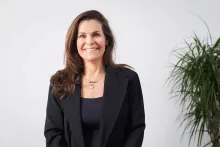African capital markets have undergone significant growth and transformation over the past few decades. They play a crucial role in mobilising savings, facilitating investment, and supporting economic development across the whole continent. While African capital markets vary in size, complexity, and regulatory frameworks, they share some common trends and characteristics.

Size and diversity
African capital markets encompass a diverse range of exchanges, including the Johannesburg Stock Exchange (JSE) in South Africa, the Nigerian Stock Exchange (NSE) in Nigeria, and smaller exchanges in countries like Kenya, Egypt, and Ghana.
These exchanges vary in terms of market capitalisation, trading volumes, and the number of listed companies. South Africa's JSE is the largest and most liquid exchange on the continent, while other, smaller markets are growing rapidly.
Growth and development
A combination of factors drives the significant growth and development experienced by many African capital markets over the last decade, including economic expansion, increased foreign investment, and improvements in market infrastructure and regulation.
A number of African countries have implemented reforms to liberalise their financial markets, strengthen investor protection, and enhance transparency and disclosure standards. This strategic focus means that plans to improve all-round performance are now in place in several African markets.
Case studies: Uganda and Ghana
Uganda
In the late 1990s, for example, the International Monetary Fund (IMF) noted what it described as a “rapid” implementation of various economic reforms in Uganda.
The Bank of Uganda assumed responsibility for formulating monetary policy and implementing it – a role previously performed by the Ministry of Finance – and ended its open-ended lending to commercial banks. (These loans had been a source of significant inflationary pressure.)
Uganda also strengthened its banking laws and supporting regulations, overhauled its supervisory functions, and implemented on-site examinations and off-site monitoring. Today, the country’s main financial regulators are the Bank of Uganda and the Capital Markets Authority of Uganda (CMA).
The CMA released its draft strategic plan for 2021/22 and 2024/25 in 2021. Its stated aims are to:
- facilitate and promote the development of the Ugandan market;
- ensure that the markets operate efficiently and with integrity; and
- strengthen the CMA’s institutional capacity to deliver on its mandate, which is, “The development of all aspects of the capital markets with particular emphasis on the removal of impediments to, and the creation of incentives, for longer-term investments in productive enterprises.”
In setting out its plan, which will be reviewed annually, the CMA notes that it is, “evident that the total amount of funding raised from the capital markets is still small as a percentage of [Uganda’s] GDP.”
The CMA’s aspirations are for the capital markets play a more significant role in financing the Ugandan economy, and to reverse the downward trend in the ration of domestic market capitalisation to GDP. The plan also makes special mention of directing national savings into Uganda’s small and medium-sized businesses, which the CMA acknowledges will not grow without the long-term financing they are in ‘dire need’ of.
Removal from the FATF grey list
Despite this rapid progress, it was not until February 2024 that the country was removed from the Financial Action Task Force’s (FATF) “grey list.” The FATF’s grey list is of jurisdictions under increased monitoring because of “identified strategic deficiencies” in their anti-money laundering (AML) and combating the financing of terrorism (CFT) counter-terrorism regimes.
The FATF applauded Uganda’s strengthening of the effectiveness of its AML/CFT regime to correct the strategic deficiencies identified in February 2020. Some of the measures Uganda adopted include:
- creating a national AML/CFT strategy;
- enhancing the use of mutual legal assistance (MLA) and maintaining statistics;
- developing risk-based supervision of both the financial and the designated non-financial businesses and professions (DNFBP) sectors;
- assessing the money laundering and terrorist financing risks related to legal persons and ensuring that authorities have timely access to accurate information; and
- pursuing money laundering investigations and prosecutions, including establishing procedures to trace and seize the proceeds of crime.
Ghana
Ghana, too, began a reform programme in the late 1990s, but progress was slower than in Uganda. The IMF identified three distinct implementation phases.
In the first phase, the main aims were to:
- retake control of credit expansion by the banking system, particularly to the government; and
- support the exchange rate policy and achieve inflation targets without crowding out the private sector.
In the second phase, the focus widened to include greater emphasis on the liberalisation of controls on interest rates and bank credit.
The final phase gradually introduced an indirect system of monetary control, which meant a shift from direct controls to increased reliance on market-based policy instruments.
As in Uganda, the central bank (i.e., Bank of Ghana) strengthened its financial position. The government sought to improve the financial sector’s regulatory framework and strengthen bank supervision as well addressing and remediating deficiencies in its AML/CTF regimes, which led to Ghana’s removal from the FATF grey list in June 2021.
In late 2023, the Ghanian Securities and Exchange Commission (SEC) unveiled its five-year strategic plan. The plan was launched at the ‘Deepening and diversifying Ghana’s Capital Market Towards a More Resilient Financial System’ conference – and while that may not be the snappiest name for a conference, it certainly encapsulated the government’s vision as it seeks to move the country from being a frontier market to an emerging one.
The SEC has set itself five goals:
- To expand the supply and improve the quality of capital market products.
- To increase demand for capital market products and services by increasing awareness and expertise “across the full investor base spectrum.”
- To expand and strengthen the entire market infrastructure, including increasing market liquidity.
- To develop and strengthen the legal and regulatory framework of the capital markets ecosystem.
- To bolster the capability and capacity of the SEC itself.
The role of foreign investment
International investors have been attracted to the continent's high-growth economies, abundant natural resources, and young and growing population. However, foreign investment flows can be volatile and sensitive to global economic conditions, liquidity concerns, lack of diverse products, commodity prices, and geopolitical risks.
IMF and United Nations (UN) investment initiatives are therefore crucial, though overseas foreign direct investment (OFDI) remains significant. For example, Chinese investment has continued to increase steadily since 2003 despite a general decline in OFDI into Africa that began in 2010.
The top five African destinations for Chinese OFDI in 2022 were:
- South Africa;
- Niger;
- the Democratic Republic of Congo;
- Egypt; and
- Cote d’Ivoire.
The top five OFDI African countries for the United States in 2022 were:
- Egypt;
- South Africa;
- Libya;
- Equatorial Guinea; and
- Angola.
There are eight more African countries that are known to receive FDI from the US, though the US will not name them on grounds of commercial sensitivity.
Challenges and constraints
African capital markets face several challenges and constraints. Ethiopia has recently been identified as one of the three countries, alongside Zambia and Ghana, that have failed to meet their debt obligations since 2020. A significant number of African nations are currently grappling with a debt crisis. Since 2019, several of these nations, including Kenya, Morocco, Nigeria, Ghana, and Egypt, have experienced downgrades from leading credit rating agencies.
Ongoing issues with market liquidity, low levels of institutional participation, inadequate regulatory frameworks, lack of market interoperability or use of SWIFT, and political and economic instability in some countries. Many African exchanges are also heavily concentrated in a few sectors or large-cap stocks, which can limit diversification opportunities for investors.
Opportunities and potential
Despite these challenges, African capital markets offer significant opportunities and potential for growth. With a young and growing population, increasing urbanisation, and rising middle-class consumption, there is a growing demand for more financial products and services.
This presents opportunities for country collaboration, new listings, innovative financial instruments, and the development of alternative investment products such as bonds, exchange-traded funds (ETFs), and derivatives.
Outlook
The future of African capital markets looks promising, but further reforms and investments in market infrastructure, technology, and human capital are all required.
Governments, regulators, and market participants need to collaborate closely to address the challenges facing the industry and unlock its full potential. Strengthening corporate governance, improving transparency and disclosure standards, and enhancing investor education and protection will be key priorities.

Thomas Murray's Risk Committee
Thomas Murray's Risk Committee is made up of analysts, experts in financial market infrastructures (FMIs) and network managers. The committee meets regularly to assess the health and stability of capital markets, custodian banks, transfer agents, fund platforms, prime brokers, cash correspondents and market infrastructures around the world.
Insights

KACC has successfully passed Thomas Murray's assessment for observation of the CPMI-IOSCO PFMI principles
KASE Clearing Centre JSC (hereinafter – KACC, Clearing Centre) announces that it has successfully passed an assessment by the UK's post-trade risk ass

KACC has been assigned a Central Counterparty (CCP) public risk assessment of "A+" with a "positive" outlook by Thomas Murray
KASE Clearing Centre JSC announces that the UK's specialist post-trade risk assessment firm, Thomas Murray has assigned it a CCP Public Risk Assessmen

Nurturing development: the road ahead for African capital markets
African capital markets have undergone significant growth and transformation over the past few decades.

Update: Capital markets of Ukraine and Russia
Despite the war, capital markets in Ukraine and Russia have kept operating, but the landscape for foreign investment is different in each country.


